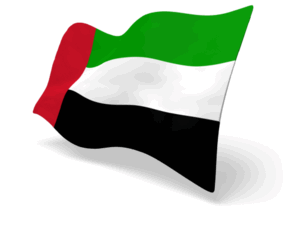Get Expert Advice to Study in Dubai
Study in Dubai
Capital
Dubai
Population
3.6 million
Language
Arabic, English
Currency
AED (~ INR 22)
Major Cities
Dubai
Top Universities
Khalifa University
United Arab Emirates University
American University of Sharjah
No. of International Students
29,000
Why Study in Dubai?
For Indian students considering higher education abroad, Dubai presents a compelling option worth exploring. Dubai boasts a vibrant multicultural environment that offers students a unique opportunity to interact with individuals from diverse backgrounds, fostering a global perspective and enriching their learning experience. Additionally, the city is home to a plethora of reputable universities and colleges offering a wide range of courses across various disciplines, ensuring students can find programs tailored to their academic interests and career aspirations. Moreover, Dubai’s strategic location as a global hub provides students with access to internship opportunities and networking possibilities with leading multinational companies, enhancing their prospects for future career advancement.

Furthermore, Dubai offers a high standard of living coupled with world-class infrastructure and amenities, ensuring students enjoy a comfortable and enriching lifestyle during their academic journey. The city’s modern facilities, state-of-the-art campuses, and cutting-edge research opportunities create an environment conducive to academic excellence and innovation. Moreover, Dubai’s strong focus on innovation and entrepreneurship makes it an ideal destination for students looking to cultivate their entrepreneurial skills and explore emerging industries.
Popular Courses to Study in Dubai

Business & Management

Information Technology & Engineering

Hospitality & Tourism Management

Finance

Media Studies
Admission Requirements for International students
Academic Transcripts:
Educational Qualification Certificates
Standardized Test Scores:
Scores from standardized tests like the SAT, ACT, or English proficiency tests such as TOEFL or IELTS may be required, depending on the program and institution.
Passport
Visa Documentation:
Visa application forms, passport-sized photographs, and other relevant documents for obtaining a student visa to study in Dubai.
Letter of Recommendation
Statement of Purpose (SOP)
Intakes for Study in Dubai
Major Intake:
September
2nd Intake:
January
3rd Intake:
July
Step by Step Application Procedure for International Students
Research & Choose a Program
Check Admission
Requirements
Prepare Necessary Documents
Apply to Universities
Pay Application Fees
Wait for Admission Decision
Receive Offer Letter
Accept Offer & Pay Tuition Deposit
Apply for a Student Visa
Plan for Accommodation & Arrival
Attend Orientation & Register for Classes
In Pursuit of the Best Study Abroad Options
Expert advice, quick admissions and hassle free student visa for the top ranked universities from the study abroad specialists.
Cost of Education
Tuition fees for undergraduate and postgraduate programs in Dubai typically range from approximately AED30,000 to AED90,000 (INR 6,60,000 – 19,80,000) per academic year.
Living Cost
Accommodation:
AED 2,000 to AED 5,500 (INR 44,000 – 1,21,000) per month
Food:
AED 800 to AED 1,500 (INR 17,600 – 32,000) per month
Transportation:
AED 200 to AED 400 (INR 4,400 – 8,800) per month
Books and Supplies:
AED 200 to AED 400 (INR 4,400 – 8,800) per month
Utilities:
AED 400 to AED 800 (INR 8,800 – 17,600) per month
Personal Expenses:
AED 300 to AED 800 (INR 6,600 – 17,600) AED per month
Part Time Work Allowance for International Students
International students need to obtain a work permit to legally work part-time in Dubai. This permit is usually facilitated by their university or college, and students must adhere to the regulations set by the Dubai authorities. International students with work permit can typically work a maximum of 20 hours per week during the academic term.
Student Visa & Post Study Work Visa for International students
Student Visa
Student Visa (Residence Permit):
This visa allows students to reside in the UAE for the duration of their academic program. The student visa is sponsored by the educational institution where the student is enrolled.
Post-Study Work Visa
Employment Visa:
International students who secure employment in Dubai after graduation may apply for an employment visa sponsored by their employer.
Entrepreneurial Visa:
International students interested in starting their own business in Dubai may explore entrepreneurial visa options.
Freelance Visas:
The UAE also offers freelance visas for individuals who wish to work as independent contractors or freelancers in Dubai. This option may be suitable for international students with specialized skills or expertise.
Scholarship Options for Study in Dubai
While scholarship opportunities for Indian students studying in Dubai may not be as abundant as in some other countries, there are still several options available. Here are a few prominent scholarships that Indian students may consider:
- Dubai International Academic City (DIAC) Scholarships
- Dubai Scholarship Programs
- Institution-Specific Scholarships
- Mohammed Bin Rashid University of Medicine and Health Sciences (MBRU) Scholarships
- Zayed University Scholarships
In Pursuit of the Best Study Abroad Options
Expert advice, quick admissions and hassle free student visa for the top ranked universities from the study abroad specialists.
FAQs
A: Admission requirements vary depending on the university and program. Generally, students need to submit academic transcripts, standardized test scores (if applicable), language proficiency test scores, letters of recommendation, and a statement of purpose. Specific requirements may differ, so it’s essential to check with the university.
A: Tuition fees vary depending on the university, program, and level of study. Generally, undergraduate programs can range from $10,000 to $25,000 per year, while postgraduate programs may range from $12,000 to $30,000 per year. Medical and MBA programs tend to have higher fees.
A: Yes, some universities in Dubai offer scholarships and financial aid to international students based on academic merit, financial need, or other criteria. It’s essential to research and apply for scholarships well in advance.
A: Yes, international students on student visas in Dubai are generally allowed to work part-time during academic sessions and full-time during vacation periods, subject to certain restrictions. Students should obtain approval from the relevant authorities and adhere to the specified work hour limits.
A: Accommodation options in Dubai include university dormitories, shared apartments, private rentals, and homestays. It’s essential to research accommodation options, consider factors such as location, facilities, and budget, and make arrangements well in advance.
A: Dubai does not offer a specific post-study work visa, but international students may explore employment opportunities after graduation through avenues such as employment visas, entrepreneurial visas, graduate employment schemes, and freelance visas. It’s essential to research visa regulations and employment opportunities in Dubai.
A: Dubai is generally considered safe for international students, with low crime rates and a welcoming environment. However, students should exercise caution, adhere to local laws and customs, and stay informed about safety guidelines and emergency procedures.


